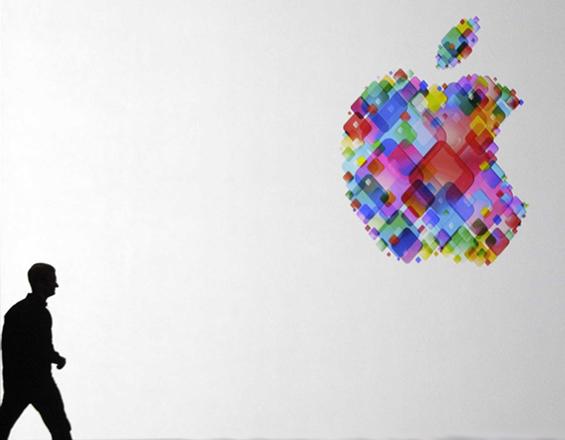You are here
Apple’s events are getting as predictable as the company
By Los Angeles Times (TNS) - Mar 22,2016 - Last updated at Mar 22,2016

Photo courtesy of dogtownmedia.com
CUPERTINO, California — “Good morning and thanks for joining us.”
When Apple Chief Executive Tim Cook began his company’s tri-annual product launch Monday with a refrain any Apple fan or well-versed critics knows by heart, it was a sign they were in for the usual drill.
For years, the formula has worked, turning ordinary press conferences into objects of international fascination and Apple releases into can’t-miss events. But with Apple confronting declining annual sales growth of the iPhone for the first time since it launched in 2007, are even its iconic product unveilings in need of a refresh?
The tech press has jumped on Apple in the last two years, repeatedly blasting the company’s increasingly predictable media events in headlines as “boring”. And social media commentators have piled on.
The rhetoric continued Monday as Apple announced a new 4-inch-display iPhone, called the SE, aimed at consumers whose small hands, tight pockets or thin pocketbooks couldn’t handle the big-screened iPhones unveiled last year. iPhone SE starts at $399, making it the most affordable iPhone ever by $150.
The Cupertino, California, company also released an iPad Pro that doesn’t have a giant screen; colourful wristbands for the Apple Watch; and minor software updates for the Apple TV, iPhone, iPod and iPad. Nothing was a big surprise.
Not even the scheduling. During the last four years, as winter gives way to spring, spring to summer and summer to fall, Cook has taken to a Northern California stage. First, he trumpets Apple’s growth. Then, he and other executives run through demos of new hardware. Faster processors. Better cameras. More battery life. For the biggest announcements, there’s a celebrity or two — maybe a U2 appearance. You get the gist.
Couldn’t a company that heralds itself for being innovative find a way to spice things up? Say, holding media spectacles in a country where Apple is still winning over hordes of first-time customers, including India, Brazil and Russia? Maybe partnering with a media company or moving the event to prime time to help gain new attention?
It’s all possible, but close followers of Apple say nothing is likely to change soon. Though the mere words “Apple event” suggest a highly choreographed performance, starring middle-aged white men in front of gigantic illustrations in a darkened auditorium, the event still draws attention. Just as it did Monday.
The only alterations on the horizon would be slight ones when Apple starts holding events at its new ring-shaped headquarters, expected to open early next year.
“There may be a point where they have to take a greater risk, but that’s not now,” said Roger Kay, president of research firm Endpoint Technologies Associates. “Because they have a winning hand, they should keep playing it. They can continue to milk that for a long time.”
For all the talk of the demise of the iPhone, it’s still the single bestselling phone on the planet next to Samsung’s offerings, accounting for more than $155 billion in revenue last year. That’s more than companies like Intel Corp. and General Electric make from everything they sell. And Cook, pointing to Apple’s image as a luxury brand in countries just starting to see a middle-class develop, has said he’s not concerned about the iPhone falling out of favour.
Wall Street investors recently have seen differently, briefly selling off Apple shares as fast as they did many other tech companies. Some have relegated Apple to a value company that produces predictable, generous profits, but not so much a growth stock anymore. Shares of Apple traded down after Monday’s event, hovering 0.2 per cent down on the day at $105.72 around noon.
In a sense, the company’s stability is reflected in the staid nature of its big unveilings.
That’s fine, Kay said, because Cook’s task is to avoid losing control of the “fantastic machine” that Apple co-founder Steve Jobs left behind when he died in 2011.
“He just wants to drive it down the middle of the road,” Kay said of Cook.
Apple watchers acknowledge that Cook doesn’t have the same dramatic flair as Jobs, which is why people might be looking for something different out of the events. Though he set the tone for the event that endures today, Jobs was famous for capping off events with huge surprises.
Cook, so far, has focused more on subtle changes, including to the events. He has opened them to a global audience via livestream, though Apple hardware and software are required to view.
He also has continued to perfect Apple’s use of celebrity speakers “to place an exclamation point on the product release”, said Paul Kent, who worked with Apple on organising the once-annual Macworld event.
The cameos have included a performance by singer John Mayer when touting an update to GarageBand music-recording software, and a comedic appearance by Stephen Colbert when showing how to make phone calls from a desktop. Kent said Apple’s stunts manage to come off as more than a novelty because they’re woven in well.
“They’ll use music to remind people that Apple’s goal and Apple’s reach is inspiring people to be productive and creative,” Kent said. “It’s been fine-tuned to be used with a greater effect.”
The well-known figures are just one part of what experts consider a premium event experience, reflective of Apple’s status as a high-end brand. Apple uses slick videos to detail the most mundane of features. Mishaps are rare, such as when Chinese audio translations were accidentally streamed to US listeners at the launch of the iPhone 6.
“Nobody is unhappy with the Apple event process; they are straightforward and consistent,” said Kent, who now runs Silicon Valley tech event consulting firm PKCreative.
The elements work so well that T-Mobile, Tesla and other companies now emulate parts of the Apple set-up.
“It’s a product launch event,” said Sandro Olivieri, founder of Productive, an innovation consulting agency in San Francisco. “It shouldn’t be that big of a deal. But people are hungry for it. It’s premium and exclusive and [Apple] wants to continue to drive that hard.”
As far as moving events abroad, Kay said the idea is reasonable.
“They have this role as an international icon and they could step on that gas a little more,” he said.
But Tim Bajarin, a longtime Apple analyst, offered another reason why the process, which dates to spiels Jobs gave in the 1980s, is unlikely to get a new look soon.
“This is a part of their way of honouring Job’s legacy,” he said.
Related Articles
SAN FRANCISCO — Apple celebrated its 40th anniversary on Friday at the top of its game, as the Silicon Valley legend that sprang out of Stev
Apple reshaped technology and society when Steve Jobs unveiled the iPhone seven years ago. Now, the trend-setting company is losing ground to rivals that offer what Apple has stubbornly refused to make: smartphones with lower prices and larger screens than the iPhone.
NEW YORK — Apple became the first US company to hit $3 trillion in market value, briefly reaching the landmark on Monday in the latest demon

















